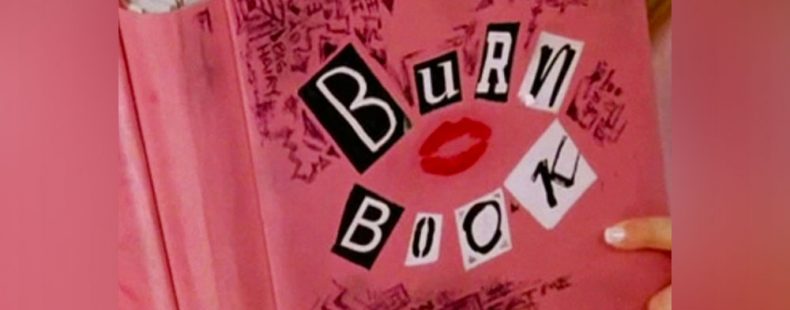Fair warning: The language here could get a little strong for some tastes.
Raise your hand if you’ve ever slipped up and said a curse word in front of your boss, your grandma, or anyone else you probably shouldn’t have. We’re right there with you (totally raised our hands).
Don’t be too hard on yourself. Swearing has a long history—words tend to stick around when they fill a need for a language or society, and swear words do just that. What useful purpose could expletives possibly serve? Glad you asked. Keep reading to see just a few.
Evoking Emotion
Think of swearwords like verbal exclamation points: They express emotion and emphasize emotional responses to the world around us. You know how cathartic they can be when you step on a LEGO or bump your elbow. And you know who has your back on that? Science.
A professor at Keele University in the UK led a study in 2009 where he had 67 student volunteers plunge their hands into icy water and repeat either an expletive or a neutral word, keeping their hands submerged for as long as they could. Sounds fun. They found that the students who picked expletives were able to keep their hands in the water for an average of 40 seconds longer, and they reported feeling less pain.
They also found that swearing stimulates the same part of the brain that governs your “fight-or-flight” response. You know, the ancient lizard part of your brain. So not only does swearing relieve pain, it lets you express the “fight” part of that response without resorting to physical violence. So really, those so-called “naughty words” are doing a public service to us all.
Provoking Emotion
A lot of Western culture has been influenced by Christianity. As a result, a lot of our swearing is religious, or has to do with being irreverent toward religion. A curse is “the expression of a wish that misfortune, evil, or doom befall a person, group.” Something that’s profane is “characterized by irreverence or contempt for God or sacred principles or things; irreligious.” To swear is “to make a solemn declaration or affirmation by some sacred being or object, as a deity or the Bible.”
Basically, because the Bible (and the Torah and the Koran, actually) says “You shall not misuse the name of the Lord,” it’s provocative and rebellious to say things like “God, I hate that guy,” or…

Credit: Giphy
Swearing/cursing/profanity doesn’t necessarily need to be religious to be provocative. When a six year old starts swearing, what do they say? They usually don’t pick a religious word for their first one. They go big. They drop an f-bomb or whip out the s-word, then quickly look at you to see if/how you react. But that’s the thing. Kids (especially little ones) like to test and explore their limits. They push the boundaries of rules to learn where those boundaries are. And let’s not pretend it stops at childhood. You’ve probably said one recently just to get a rise out of someone, too. It happens, you know? When you feel something, you want others to feel it with you (for better or for worse).
Fitting In
In some cases, you might not be able to fit in unless you do swear. While swearing can be a thing we do to grab and command attention, there are some circles where it’s just such a part of the landscape that you stand out by choosing not to swear. Think of rappers and stand-up comics. Jim Gaffigan is widely known as a “clean” comic. The fact he uses little to no profanity in his work comes up in almost every interview. Hell, it’s the third sentence on his Wikipedia page.
Your anti-swearing friend might say “Sure, but that’s entertainment. You can’t do that in a professional setting.” You know what proves them wrong? Science.
The BBC wrote an intensely researched article on swearing in March 2016. In one section, they described a study about swearing at work:
A study in New Zealand for example examined the interactions and use of the term “fuck” by a team of workers at a soap factory. Researchers from Victoria University of Wellington found that while the workers regularly swore amongst themselves, they didn’t swear as much with colleagues from other teams.
They concluded that in this work context, the word “fuck” was associated with expressions of solidarity, and was used to bond members of the team, ease tensions and equalise members with different levels of power and responsibility, “as if they are saying ‘I know you so well I can be this rude to you.’”
You read that right. Swearing can be a sign of community within a work team. It’s an intimate type of language, and using it signals that you have a close enough relationship with someone to speak candidly around them. Not all studies agree on this idea, but more on that later (promise).
Fun
Let’s be real. You don’t only swear when you’re at an emotional extreme. Sometimes you just do it because it’s fun. An expletive is actually “a syllable, word, or phrase that serves to fill [a sentence] out.” Another definition is “a word considered as regularly filling the syntactic position of another, as it in It is his duty to go.” Basically, expletives just exist to fill up space in a sentence without adding any extra meaning. It makes sense if you think about it. You know that when you swear, you don’t always mean the words literally. But when you do, we can agree it’s much more fun to say the dirty word than the clean one.
Why do We Even Have These?
Don’t let people blame today’s music or TV for swearing, either. Even the Romans did it. The citizens of Pompeii famously immortalized their obscenities in some of the same ways we do today: on the walls of public buildings, restrooms, and bars. Yes, graffiti artists can trace their proud tradition back to the ancient Romans. The Romans, too, used expletives as insults, but because they saw each other naked more often than we see each other today (think public baths and bathrooms), not all expletives referring to body parts were obscene. It was considered far more offensive to refer to someone as feminine or imply they took a passive role during sex (unfortunately, misogyny has also been around for a long time).
We started getting the idea that bodies and bodily functions were “unclean” around the time of the Black Death. Widespread disease and death can de-romanticize human bodies really fast.
So Should I Do the Thing?
The short answer is “It depends.” Let’s maybe not give Grandma a heart attack today.
Not everyone is okay with swearing. Some even go so far as saying it makes you sound dumb, disrespectful, low class, or unprofessional (or all of the above). A study from 1973 found that using swearwords in a professional setting made you less credible and persuasive. Also, surprise, they found the effect was even worse if you were a woman. People assumed that choosing to use swearwords meant you were too dumb to think of different, better, or more polite words.But.

Credit: Giphy
Newer research (from 2015) shows that someone using expletives has nothing to do with a lack of overall vocabulary. If anything, having a larger vocabulary could also mean you have a proportionally larger number of swearwords in it. Basically, if you’re intimately familiar with a language, you have a better understanding of how its insults (including slurs, expletives, and “expressive expressions” like ouch!) can or should be used.
That said, you really should be careful with expletives that are disparaging toward people of any kind (including genders, races, ethnicities, etc.). There’s a really fine line between terms that have been “reclaimed” and words that are just not okay across the board. The hard part is that different words fall into different categories for different people. Maybe you’re okay with saying bitch but the person you’re talking to isn’t. That’s totally fair, and it’s important to be mindful of other people’s boundaries. Just like those soap factory workers wouldn’t use the f-word among other teams than their own, you should really make 100% sure that whomever you’re swearing around is okay with it before you do the thing.
Another important thing to realize is that it is possible to have too much of a good thing. Swearing tends to lose its power if you do it all the time. Sorry.
So, once again: Raise your hand if you’ve ever felt personally victimized by Regina George. Just kidding, raise your hand if you’ve ever said a dirty word in the wrong context. Yeah, us too. As much as we try to filter ourselves, swearing happens. There are plenty of great reasons to do it, and the words really do serve a good purpose in today’s English. As long as you’re among company that’s on the same page with your swearing policies, let that $h!t rip.












